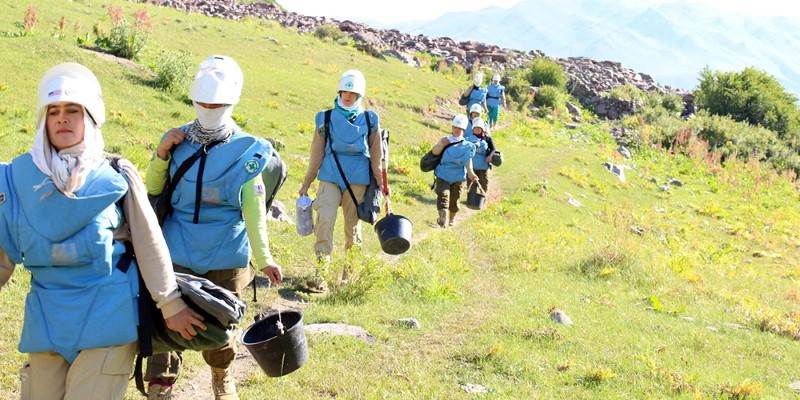‘During our presidency, we will highlight the huge risk to civilians posed by anti-personnel mines and explosives in many countries, and the major social and economic consequences this has,’ said Minister of Foreign Affairs Ine Eriksen Søreide.
Read more: Taking over the presidency of the Mine Ban Convention (from Norway's Mission to the UN i Geneva)
Norway is one of the five largest donors to global mine action. In 2018, Norway has provided over NOK 325 million for surveys and mine clearance efforts in 18 countries.
‘The Mine Ban Treaty is probably the most successful disarmament agreement of recent times,’ said Ms Eriksen Søreide.
Since the Treaty was adopted in Oslo in 1997, 164 countries have committed themselves to refraining from producing, using and stockpiling these weapons. Some 53 million stockpiled mines have been destroyed, and every year, large areas of land are cleared of mines.
‘The fact that non-state armed groups are now using prohibited weapons on a large scale, often in the form of improvised explosive devices, is, however, cause for concern. This development has been particularly evident in Syria, Iraq and Afghanistan, but we are also seeing it in a number of other conflict areas,’ said Ms Eriksen Søreide.
In 2017, for the third year in a row, there was a high number of registered deaths and injuries as a result of landmines.
‘Almost 90 % of those who were registered as killed or injured by landmines last year were civilians. Almost half of them were children. It is crucial that we ensure that people are better protected from these banned weapons.
‘Mine clearance is an important component of Norway’s humanitarian efforts. It is often essential for ensuring that emergency assistance can reach those who need it, that refugees and displaced people can return to their homes, and that post-conflict reconstruction can begin,’ said Ms Eriksen Søreide.
Many affected countries are still suffering the effects of conflicts that ended a long time ago.
‘Landmines and cluster munitions continue to have devastating effects and prevent all forms of development long after conflicts have ceased,’ said Minister of International Development Nikolai Astrup.
Most landmine-affected countries are low-income countries that are dependent on international support for their mine clearance efforts.
‘In very many countries, Norway’s support for surveys and for clearing land areas contaminated with landmines is an important contribution to development and to improving people’s standard of living. Land areas that have been cleared and returned to local communities can be used for agriculture, tourism or urban development,’ said Mr Astrup.
Norway takes over the presidency of the Mine Ban Treaty from Afghanistan, which is one of the most landmine-affected countries in the world.
